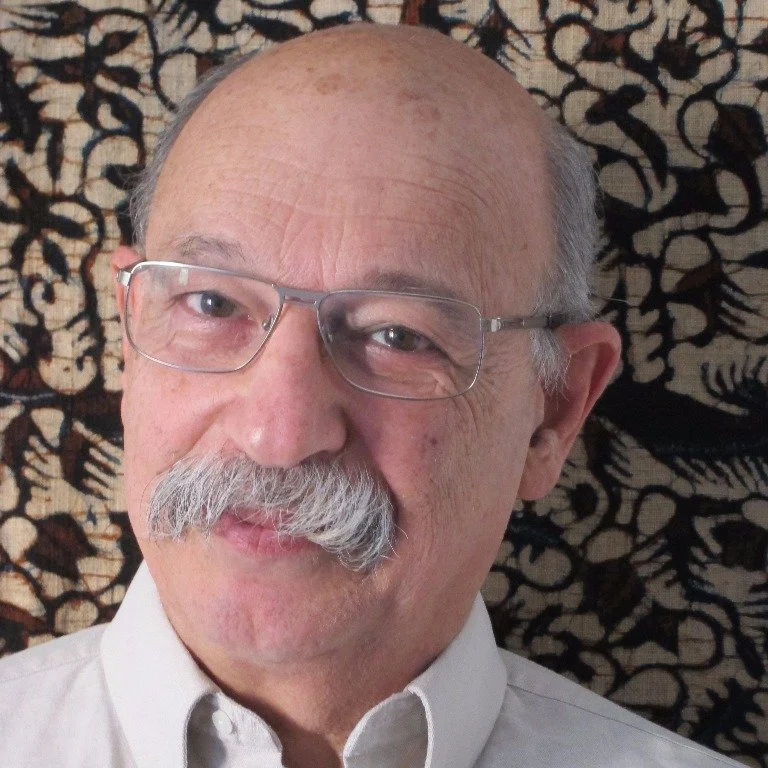Eran grew up in a house of words and music. Words, because as an immigrant kid from Israel, he lived with three languages: Hebrew, German and eventually English. Words because both his parents were educators for whom words were their stock and trade. Music, because his parents and grandparents were all dedicated either to playing or to listening. By the age of ten Eran was taking weekly piano, composition and counterpoint lessons, and had published a piano piece for children. His family expected him to become either an academic or a professional Classical musician. And although he has played, performed, composed and recorded various kinds of music, and has completed a doctoral degree, neither of those predictions has come to pass.
While in high school in Pittsburgh, Eran was introduced to the diverse cultures of immigrant communities from SE Europe and quickly became engrossed in Balkan affairs. This included switching his attention from Western music to the oral traditions of the Balkans. His BA and MA at Indiana University focused on Folklore and Slavics, which soon expanded to the greater Ottoman world and Turkish culture. In 1970 he made his first trip to Yugoslavia and met the man who would become his lifelong teacher of Macedonian music and culture. Eran returned to Yugoslavia in 1971 and spent a year absorbing the culture, history, and languages of Macedonia. Coming back to the US, Eran moved to Philadelphia for graduate school, and there he established the first ensemble to play traditional Macedonian music (Novo Selo). For years he was known on the East and West coasts as a teacher/performer of traditional Macedonian instrumental music and dance.
Eran’s interest in the Ottoman Empire led to a PhD in Medieval Ottoman History from the University of Pennsylvania. This involved three years of archival research in Skopje (Macedonia) during which time he also learned Albanian. His dissertation on the emergence of Skopje as a Muslim Ottoman city in the 15 th century challenged the existing orthodoxy about Ottoman urban history and garnered him a Malcom Kerr Award from the Middle East Studies Association. However, within academia, Ottoman studies were secondary to Arab studies, and within Ottoman studies, the Balkans were equally marginal as were teaching positions. It quickly became obvious that he would not follow in his parents’ academic footsteps. Living in Los Angeles, Eran worked as the Managing Editor of UCLA’s Ethn0musicology Publications Program and spent a year in Toronto with his then partner who was conducting her ethnomusicology doctoral research with the Albanian immigrant communities from Macedonia.
Upon returning to LA from Canada, Eran formed “Merak” that played music from the Balkans, only this time on modern instruments and with a focus on contemporary “folk” and “fusion” styles. The ensemble attracted a wide world music audience and performed regularly at various clubs and other venues around Los Angeles. He also met and eventually joined lives with Edith Johnson, who was a UCLA graduate student. When their daughter Sarah was born in 1992, Edith was offered a job in Cambridge MA. The family moved to New England and Merak disbanded – just as it was on the verge of a recording contract.
As Edith supported the family with her job, Eran remained at home for two years as the primary parent. During this time, he and two colleagues created and registered a non-profit organization called “Balkan Hands.” The wars of succession in Yugoslavia were still raging – most devastatingly in Bosnia. Consequently, the mission of Balkan Hands was to support immigrant Bosnian women by providing them the means to create traditional weavings that would be sold in the US. Before this mission could be realized, however, Eran was offered a short-term consulting mission to Macedonia, based on his knowledge of the country and its languages. While on this mission, he was introduced to Search for Common Ground, an American conflict resolution NGO that had recently opened a field office in Skopje. The directorship of Search for Common Ground in Macedonian was coming open and Eran’s decision to apply for that job was instantaneous. Within a month of returning to the US from the consulting assignment, Eran was offered the position of country director in Macedonia. The family had two weeks to pack, sell or store their possessions in preparation for moving abroad for an unknown length of time. Their time overseas lasted 22 years.
Macedonia had only achieved its independence from Yugoslavia in 1991, so that the 8 years there (1994-2002) were formative in the history of the country and for Eran’s family. Among the most important and impactful achievements during Eran’s tenure as Director of Search for Common Ground in Macedonia were: a 5-year dramatic television series called Nashe Maalo (Our Neighborhood), that modeled and promoted intercultural understanding and conflict prevention. This series, developed in cooperation with The Children’s Television Workshop (Sesame Street) won numerous accolades both within Macedonia and abroad. Second was a revolutionary bi- lingual and multi-cultural pre-school program called Mozaik, that was developed in cooperation with educators from the mixed Arab/Jewish community called Neve Shalom/Wahad as-Salam in Israel. These kindergartens are still in operation and have also been adopted by some communities in Kosovo.
From Macedonia, the family moved to Belgium when Eran was appointed East and Southeast Europe Regional Director at Search for Common Ground’s office in Brussels. During the four years in Europe, he worked with programs in Ukraine, Cypress, Macedonia, Turkey, and Greece. Also, based on the success of Nashe Maalo, Eran led teams in Nigeria and Palestine to create television programs whose mission was to promote positive social change. In Nigeria, The Station was on air for 4 years, whereas in Palestine The Joke only aired for one.
When the country director of Search’s office in Jakarta resigned, Eran was asked to move to Indonesia. This was a difficult decision since the family, especially Sarah, had set roots in Brussels and was not eager to leave. Nonetheless, Jakarta was their next destination. Indonesia can hardly be conceived of as a country. Consisting of thousands of islands stretching over thousands of kilometers, Indonesia is simultaneously fascinating and overwhelming. Eran was called on to manage projects ranging from Tsunami-ravaged Aceh in the far West to Papua in the far East.
Unlike Macedonia, where Eran was able to raise millions of Euros for Search’s programs, fundraising in Jakarta was daunting. He eventually decided to resign from Search and began working as an independent consultant for programming for social change. In his role as a consultant, Eran completed 2 assignments in Afghanistan and Kyrgyzstan, as well as trainings in Myanmar and Kenya. The Afghan assignments were under the aegis of the US Institute for Peace and resulted in one publication presenting a methodology for assessing the needs of media in conflict zones and another specific Afghan media assessment.
During our last 4 years in Indonesia, Edith had been working as a communications specialist for the International Center for Forestry Research in Bogor - about an hour south of Jakarta. Our next move, after Sarah had graduated high school and moved to Boston for college, was from Indonesia to Barcelona. Edith had followed Eran from the US to Macedonia and to Indonesia. Now it was his turn to follow her to Spain, where she again was employed as a communications specialist for another forestry research NGO. Eran successfully established a relationship with the Barcelona Center for International Affairs and was appointed Senior Research Fellow. In this capacity he organized and hosted several Balkan-related conferences and published a series of articles on Macedonia and on the future of the EU and the so-called Western Balkan countries.
In 2016, after 4 years in Barcelona, Eran and Edith decided to return to the US, settling in Providence RI while their daughter was in Boston. Initially Eran continued to apply for consulting work. But, as these opportunities became increasingly scarcer, he decided to devote his time to painting and drawing – something he had begun to pursue in Indonesia. Eran is a self-taught abstract artist, whose work is very much influenced by the diverse cultural environments in which he has lived, He has always been intrigued by the dialectic of whether attraction inspires knowledge or whether knowledge precedes attraction. In terms of the arts, are you attracted to something that you then want to understand better, or do you need to understand something first to be attracted to it? Eran claims to fall squarely in the first group: needing to feel an attraction to something and then wanting to find out why he is attracted.
Eran often says that he paints what he hears, which is not to say that he necessarily is trying to capture a specific musical composition but that he is responding to tonal and rhythmic qualities that he feels and hears as he works. Like the music of the Balkans and the Middle East, which he has played most intensively, his art is largely asymmetric. Balance and harmony are achieved by fluidity -- essentially dance movements -- through the work from one section to another. Once a piece is complete, he can see and hear it. It doesn’t always sound the same, but it always sounds.
Now in their tenth year in Rhode Island, Eran and Edith have become firmly ensconced in the life of the city and New England more broadly. Edith has returned to an early passion of hers – ceramics – and since covid has also become an avid quilter. Eran continues to produce painting and drawings, which he exhibits in various shows and galleries. He is an ex-officio Board Member of the Pawtucket Arts Collaborative and Providence Gallery Night, and is also an Elected Artist of Art League Rhode Island and an Exhibiting Artist of the Providence Art Club.
A Far Cry is Eran’s most recent passion and his ambition is to apply his years of experience in peace building and positive social change programming.


